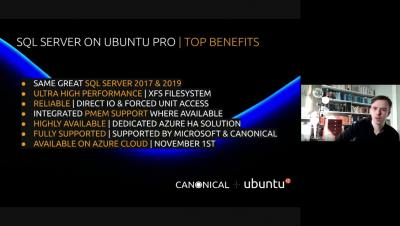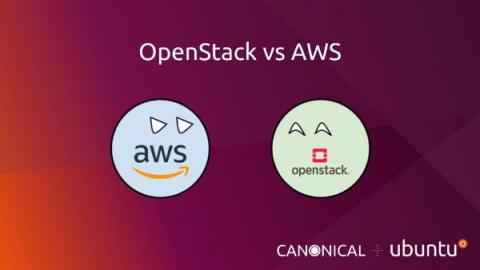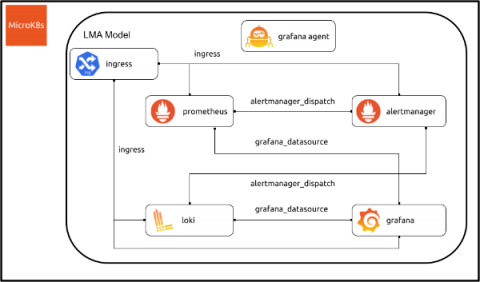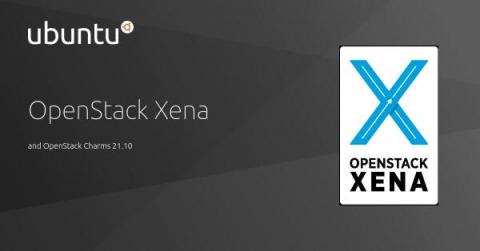Operations | Monitoring | ITSM | DevOps | Cloud
Canonical
Ubuntu Pro-based Microsoft SQL Server Instances available for Azure
1st November 2021: Today, Canonical announced support with Microsoft for Microsoft SQL Server with Ubuntu Pro on Microsoft Azure. Canonical has worked with Microsoft to bring a highly performant and fully supported solution for SQL Server to market, based around the Ubuntu Pro 20.04 LTS operating system.
Securing the Open-Source supply chain with Ubuntu Pro on Google Cloud
It’s official: since the outbreak of the COVID-19 pandemic, cybercrime has increased by 600%. Among these, ransomware attacks are estimated to cost $6 trillion in 2021 alone. And there were nearly 550,000 ransomware attacks per day in 2020. The question is: are your workloads secure enough? In this blog, we will discuss how to make your Open Source workloads more secure in one second.
OpenStack vs AWS: which one is better for you?
OpenStack vs AWS is a discussion that almost every organisation must conduct when adopting a cloud strategy. This is because OpenStack and AWS are undoubtedly some of the most popular cloud technologies in both public and private cloud space. While AWS is the most popular commercial cloud platform, OpenStack remains its most popular open source equivalent. Both have their own pros and cons. But which one is better for you?
Enhance the security of your open-source applications and share feedback
Are you spending time on high-impact, high-value activities, or are you constantly derailed by maintenance, support, and deployment challenges? Does your organisation consume open-source software that needs security patching? Where do you get the security updates from, and how do you track what’s available? Are you responsible for vulnerability management, compliance, and long term maintenance of the software running on top of Ubuntu in your organisation?
LMA 2: Reimaginging observability with MicroK8s and Grafana, Prometheus and Grafana Loki
Juju re-imagines the world of operating software securely, reliably, and at scale. Juju realizes the promise of model-driven operations. Excellent observability is undeniably a key ingredient for operating software well, which is why the Charmed Operator ecosystem has long provided operators the ability to run a variety of open source monitoring software. We collectively refer to these operators as the Logs, Metrics, and Alerts (LMA) stack.
Zero to hero: Enterprise multi-cloud application management from Day 0 to Day 2, on any substrate
OpenStack Xena and OpenStack Charms 21.10
The release of OpenStack Charms 21.10 brings native support for OpenStack Xena in Charmed OpenStack. This latest version of OpenStack comes with initial support for SmartNICs in Nova and further improvements around Neutron Open Virtual Network (OVN) driver integration. In order to further simplify the job of the cloud operations teams, the OpenStack Charms 21.10 release offers improved day-2 automation, including additional charm actions and better upgrade experience, and new operations documentation.










